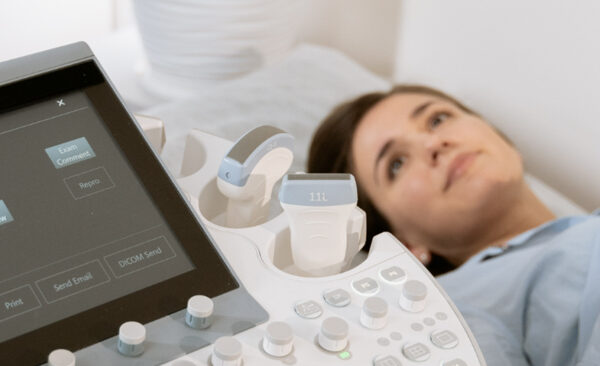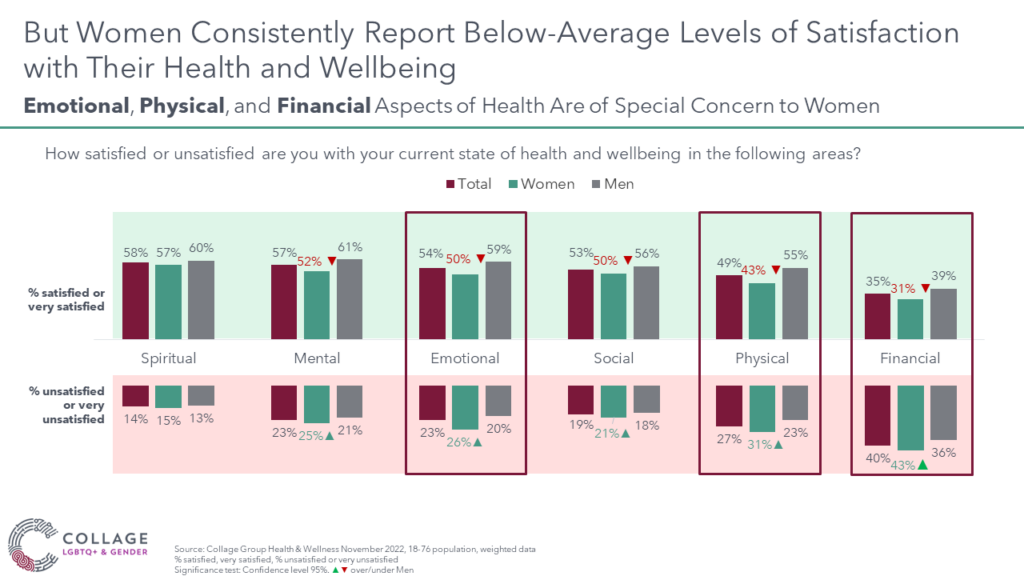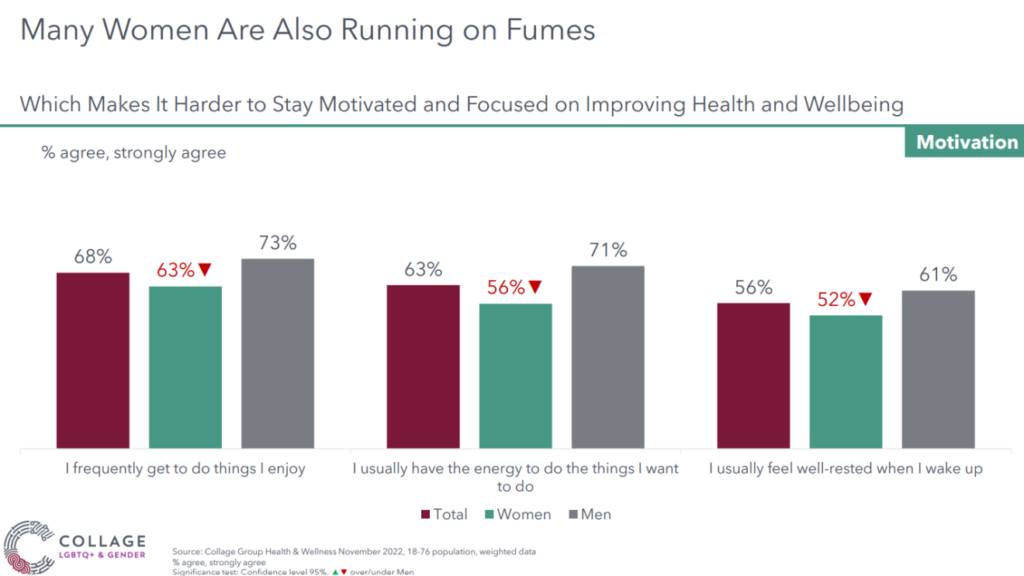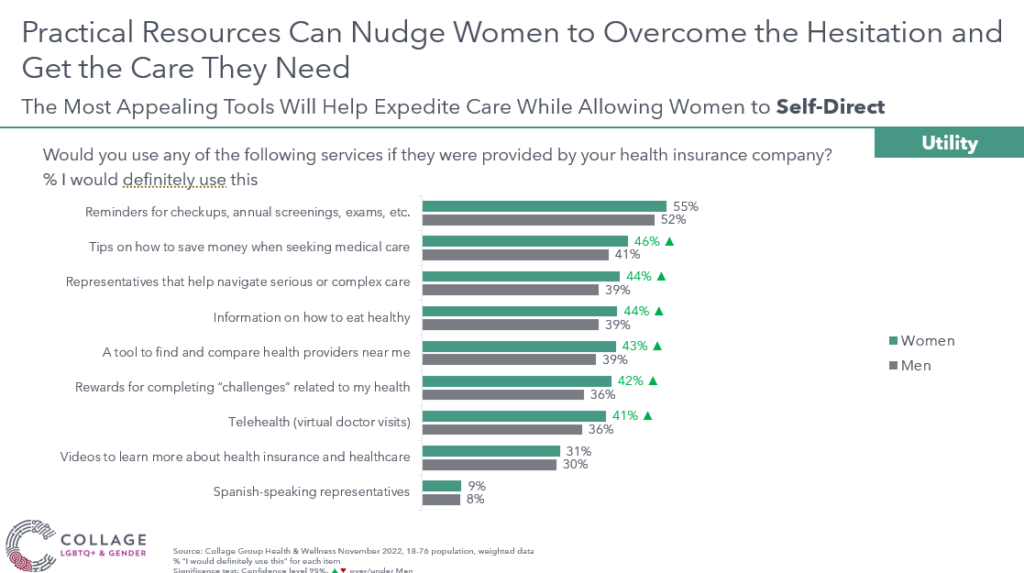Appeal to Women’s Health Preferences: Medications, Insurance, Providers & More

Health and wellness are major aspects of consumers’ daily lives. Americans spend a significant amount of time — and money — tending to their health. All brands, both within and outside of the health and wellness space, must understand consumers’ attitudes and behaviors in this key area of their lives.
Fill out the form for an excerpt from our Appeal to Women’s Health Preferences presentation.
Collage Group’s 2022 Women’s Health and Wellness Pulse Check provides insights across gender on:
- Perceptions of health and wellness: Definitions, satisfaction levels, health habits, caregiving, and more.
- Barriers to achieving better health: Cost, low motivation, and past negative experiences with healthcare providers.
- Support and improvements that will help women move the needle towards achieving health: Enhancing utility, being more transparent, and demonstrating empathy.
Key Finding: Perceptions of Health
Despite taking a proactive and thoughtful approach to their health and well-being, women are generally dissatisfied with their current state of health.

Context
Women’s time and energy are spread thin. They are torn between their Conscientious nature and the pull of their Self-Caring Group Trait. The expectation to put others first while taking on the bulk of household responsibilities coupled with systemic economic inequality limits their capacity to keep up their own health and wellbeing.
Action Steps
- Temper overly optimistic imagery and lean into the honest narratives that recognize women’s struggle to achieve optimal health and well-being.
- Offer practical ideas to help women set and celebrate smaller wellness goals.
Key Finding: Barriers
Low motivation along with lack of money and past negative experiences with the healthcare system present serious obstacles for women working to improve or maintain their health.

Context
Poor mental and emotional well-being makes it harder to seek or receive care. This, in turn, leads to the added stress of not doing enough to be healthy, completing the vicious cycle.
Action Steps
- Create practical tools and content to guide women through incremental improvements in their sleep, self-care routines, and other practices that improve overall well-being.
Key Finding: Support & Improvements
Women are looking for practical tools that streamline their decision-making.

Context
Women recognize the importance of receiving proper medical care but may be reluctant to ask for help. Their Self-Directed Group Trait suggests that they want to make their own informed decisions.
Action Steps
- Offer tools, resources, and content that optimize women’s healthcare journey without limiting their ability to be in control.
- Invest in customer-facing technologies that improve the patient experience and streamline the information flow.
This blog includes a small sample of the deep cultural intelligence available to our members. Contact us to learn how you can unlock full access to our cultural intelligence engine.